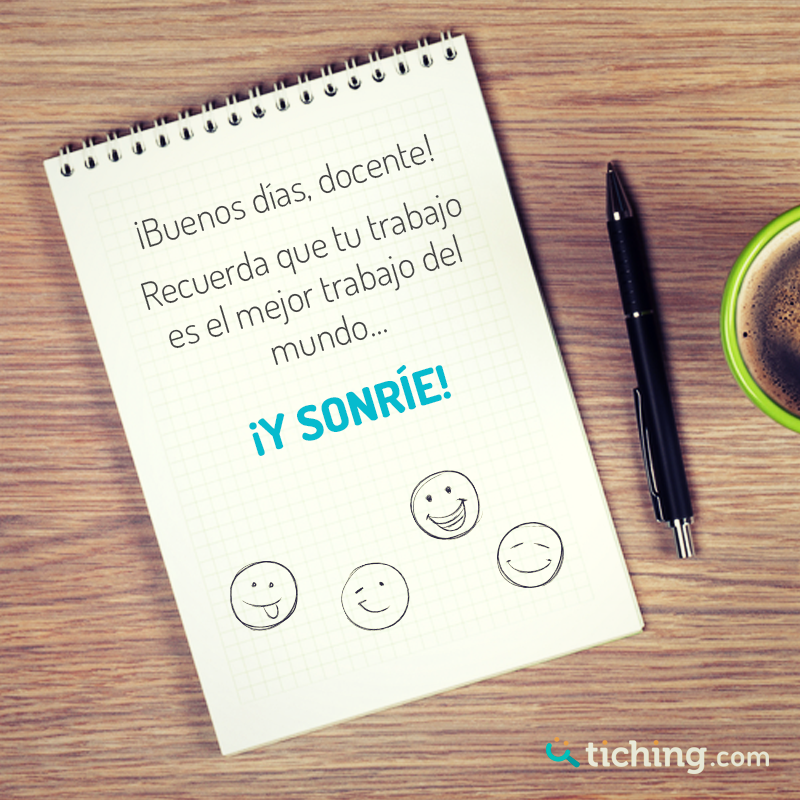This week we had the pleasure of interviewing Glòria Santaulària, head of communications at Tiching. Do you still not know Tiching?That’s impossible, is the biggest Spanish-language educational network with more teachers around the world!
ABOUT TICHING
Tiching described in less than 50 words
Tiching is a social school educational network with presence in nineteen countries it has been thought to be the space where the educational community can meet. In it, teachers, students, family and publishers can share and manage educational resources to learn and teach better.
What can expect a teacher or a school when they enter in Tiching?
“Tiching is designed to simplify the task of teachers! The teacher will find a space in which to create an educational profile to reflect and publicize its educational identity, to contact with other teachers in the world and share their educational experiences, to keep learning with like-minded teachers.”
It also has a personal library, where you can organize educational resources and generate teaching sequences and textbooks for their students, and classes, which facilitate communication with their students and the allocation and evaluation tasks.
What benefits does the network for students and families?
The advantages that Tiching provides to students are mainly three: access to educational and funny resources with which to expand the content and learn from the way they like; easy to organize them in the library; and it provides a space to share resources and ideas with other peers, teachers and family. Thanks to Tiching, students can prepare lessons and tasks easily, organizing educational resources in a single space.
On the other hand, parents allow them to accompany their children’s learning, because they have the option to continue their evolution and development of their tasks in an educational and safe environment, besides being able to find the necessary support in other family and teachers through thematic Interest Groups.
What is the biggest obstacle you have faced so far?
Surely adapt the browser and the platform to the education systems of the 19 countries that now form part of Tiching. At first we only were in 6 countries, and in less than three years we reached nearly 20 and a six-fold increase the content that are available to the educational community.
Adding a new country to Tiching is a complicated process because it requires, in addition to introducing all schools in the state, establish equivalence between the content and the subjects, so that the resources that another person from another country shared may also appear in the search using the criteria of the new country’s education system. Quite a challenge, right? The work of our educational department was key to this project, in addition to the work of a small research team to achieve find all the necessary information.
Tiching has become the largest Spanish-speaking educational network and is present in 19 countries, what are your next steps?
The main goal now is to continue to grow, and increase interaction between different users. We want to encourage activity within Stakeholders, a community themed environments to share, ask, talk, discuss, discover and create with others who have the same educational interest. We believe that the idea is very powerful because it can serve to teachers from different parts of the world can support and work together, sharing resources and ideas, something we consider essential to further improve education.
Do you have an anecdote? Some curiosity of emails sent by readers, teachers, parents …
“A lof of them! It is customary to receive messages from relatives who write us thinking that speak directly with the teacher of your child, or the school, and we get questions about registration to the new course or which book reinforcement have commanded in class for the summer. Even a student has written asking us for help with homework!”

ABOUT EDUCATION AND TECHNOLOGY
What are your thoughts on the future of education technology?
The role of technology in teaching and learning processes should offer improvements, help optimize processes and provide solutions. For us, one of the potential of ICT is that facilitate personalized learning and attention to diversity.
We know that everyone learns through stimuli and different strategies, so that as teachers we need to be able to offer each of our students the tools, content and resources that allow them to learn. This is very easy to say but it requires time and dedication that we don’t have always have. But, with the help of ICT, we can create different ways of presenting the content: presentations, interactive stories, videos, etc. Or create a variety of different activities: self-correcting, games, etc. We also offer more options to evaluate and personalized monitoring of students, etc.
How do you think it impacts the inclusion of new technologies in school?
“At first there was a tendency to think that ICT improve learning processes by simply placing them in the classroom. But soon we realized that without a conscious change in the way we teach, ICT served very little.”
As mentioned, ICT can facilitate and help implement the necessary changes in teaching and learning methodologies can optimize processes and facilitate the teaching task as guide and facilitator of student learning.
How do you imagine the classroom over the next five years behind the technological advances that may occur?
“Imagine a classroom where all children can learn at their own pace, where each receives craves and be offered resources, content and support according to their learning style and pace.”
We imagine a classroom with more teachers and fewer students, where each of those involved can love what he does, where teachers receive the training they need, adequate resources and support of teaching staff and families.
We imagine, of course, teachers who share the content they create or use in their classrooms, because we believe that sharing is the best way to learn 🙂


